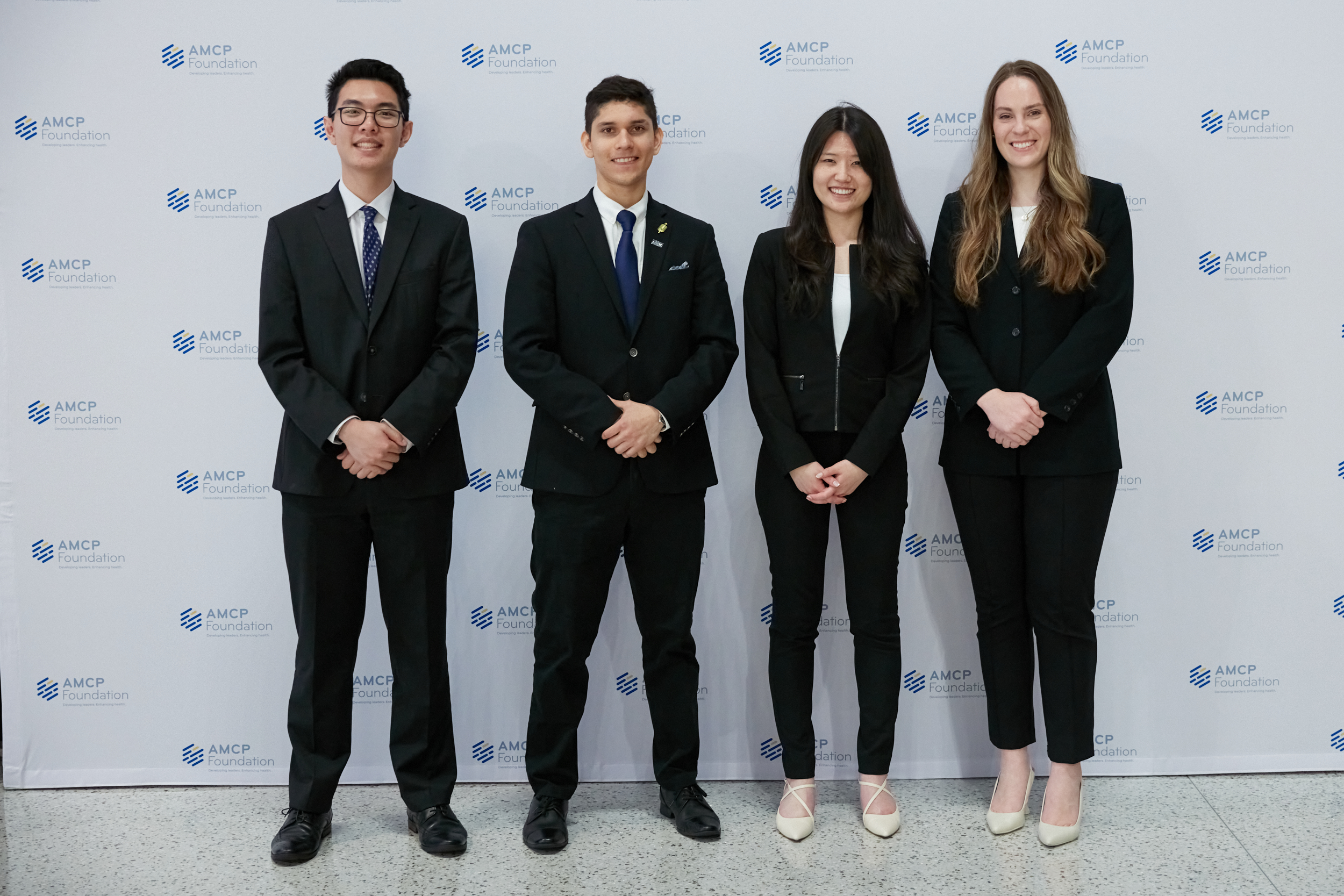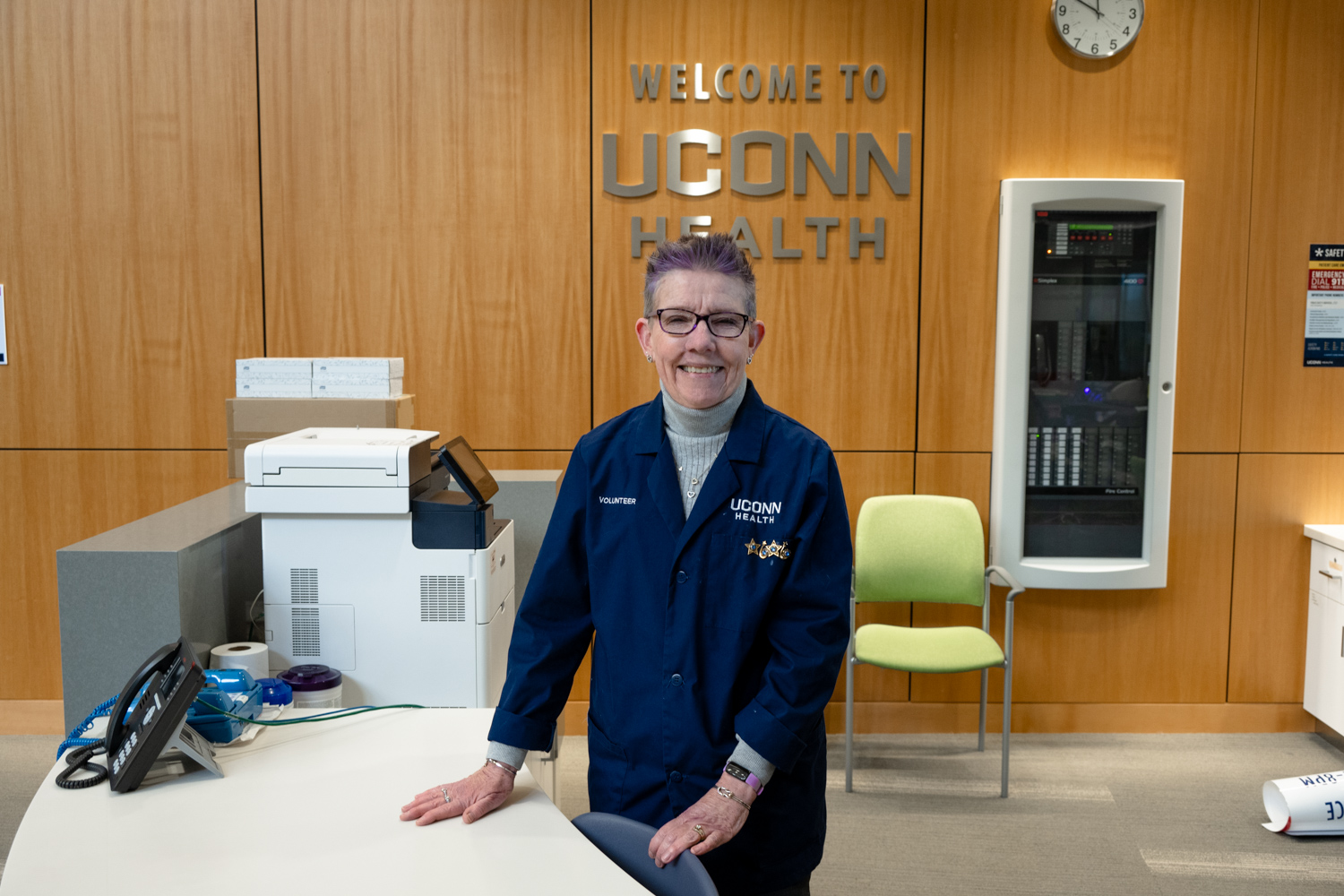The School of Engineering is pleased to welcome eight new tenure-track faculty members for the fall term. The new faculty members bring expertise in diverse sustainable energy, characterization, bioinformatics and medical imaging, structures and transportation technologies that complement and extend our core strengths. Abbreviated profiles appear below.
Chemical, Materials & Biomolecular Engineering (CMBE)
Four new faculty members have joined the CMBE Department, with broad knowledge in sustainable energy technologies that will strengthen efforts underway within the department and the Center for Clean Energy Engineering (C2E2) at UConn: Radenka Maric, who joins the Materials Science Program, and Ashish Mhadeshwar, Christopher Cornelius and Mu-Ping Nieh, who join the Chemical Engineering Program.
 After earning his Ph.D. in chemical engineering at the Virginia Polytechnic Institute and State University in 2000, Christopher Cornelius joined Sandia National Laboratories (SNL), where he rose to the esteemed position of Distinguished Member of the Technical Staff. In 2008, he returned to Virginia Tech, where he served as Associate Director for Research at the Institute for Critical Technology and Applied Science (ICTAS), Technical Director of the ICTAS Center for Naval Systems, and Associate Professor of chemical engineering. His current research focuses on the development of membrane materials for gas separation, proton exchange membranes for hydrogen and methanol fuel cells, anion-exchange membranes for water electrolysis, and proton and anion exchange membranes for water desalination. Dr. Cornelius has received over $9 million in competitive research awards along with four patents, and he has served as a member of the American Indian Science Engineering Society, an associate member of the American Chemical Society Committee on Minority Affairs, and as outreach co-chair for the American Indian Outreach Committee at SNL.
After earning his Ph.D. in chemical engineering at the Virginia Polytechnic Institute and State University in 2000, Christopher Cornelius joined Sandia National Laboratories (SNL), where he rose to the esteemed position of Distinguished Member of the Technical Staff. In 2008, he returned to Virginia Tech, where he served as Associate Director for Research at the Institute for Critical Technology and Applied Science (ICTAS), Technical Director of the ICTAS Center for Naval Systems, and Associate Professor of chemical engineering. His current research focuses on the development of membrane materials for gas separation, proton exchange membranes for hydrogen and methanol fuel cells, anion-exchange membranes for water electrolysis, and proton and anion exchange membranes for water desalination. Dr. Cornelius has received over $9 million in competitive research awards along with four patents, and he has served as a member of the American Indian Science Engineering Society, an associate member of the American Chemical Society Committee on Minority Affairs, and as outreach co-chair for the American Indian Outreach Committee at SNL.
 Radenka Maric joins UConn as the School of Engineering Named Professor in Sustainable Energy. She earned her Ph.D. (’96) in materials science at the University of Kyoto, Japan, along with an engineering degree from the University of Belgrade (’89). Her expertise includes solid oxide (SOFC) and proton exchange membrane (PEM) fuel cells, nanostructured materials, batteries, catalyst materials, polymers, coating technologies, thin film technologies and ceramic processing. She has particularly focused on ways to improve the performance-to-cost ratio of fuel cell materials and components, both through changes to microstructure and composition of the materials and components, and to the manufacturing processes used to produce them. Dr. Maric was previously a Group and Program Manager with the National Research Council of Canada – Institute for Fuel Cell Innovation, Vancouver, and held an adjunct professor appointment at the University of British Columbia. She has authored more than 100 scholarly journal papers and presentations and received numerous awards.
Radenka Maric joins UConn as the School of Engineering Named Professor in Sustainable Energy. She earned her Ph.D. (’96) in materials science at the University of Kyoto, Japan, along with an engineering degree from the University of Belgrade (’89). Her expertise includes solid oxide (SOFC) and proton exchange membrane (PEM) fuel cells, nanostructured materials, batteries, catalyst materials, polymers, coating technologies, thin film technologies and ceramic processing. She has particularly focused on ways to improve the performance-to-cost ratio of fuel cell materials and components, both through changes to microstructure and composition of the materials and components, and to the manufacturing processes used to produce them. Dr. Maric was previously a Group and Program Manager with the National Research Council of Canada – Institute for Fuel Cell Innovation, Vancouver, and held an adjunct professor appointment at the University of British Columbia. She has authored more than 100 scholarly journal papers and presentations and received numerous awards.
 Ashish Mhadeshwar received his Ph.D. in chemical engineering (‘05) and conducted post-doctoral research at the University of Delaware (’06). Prior to joining UConn, he worked as a Senior Research Engineer at the GE Global Research Center (Niskayuna, NY), where he primarily focused on projects related to emissions reduction, including emissions after-treatment for locomotives and turbines, modeling of hydrocarbon-based selective catalytic reduction (SCR), and performance modeling and optimization of membranes for CO2 capture from power plant exhaust. He has extensive expertise in microkinetic modeling, quantum mechanical modeling, semi-empirical methods, mechanism analysis and reduction, and computational catalyst design. His research at the University of Connecticut primarily focuses on computational design of next-generation materials using scale-bridging computations and experiments. A recipient of 10 GE awards for his research achievements, Dr. Mhadeshwar has 15 journal publications, one book chapter, five filed patents, and numerous presentations and posters.
Ashish Mhadeshwar received his Ph.D. in chemical engineering (‘05) and conducted post-doctoral research at the University of Delaware (’06). Prior to joining UConn, he worked as a Senior Research Engineer at the GE Global Research Center (Niskayuna, NY), where he primarily focused on projects related to emissions reduction, including emissions after-treatment for locomotives and turbines, modeling of hydrocarbon-based selective catalytic reduction (SCR), and performance modeling and optimization of membranes for CO2 capture from power plant exhaust. He has extensive expertise in microkinetic modeling, quantum mechanical modeling, semi-empirical methods, mechanism analysis and reduction, and computational catalyst design. His research at the University of Connecticut primarily focuses on computational design of next-generation materials using scale-bridging computations and experiments. A recipient of 10 GE awards for his research achievements, Dr. Mhadeshwar has 15 journal publications, one book chapter, five filed patents, and numerous presentations and posters.
 Mu-Ping Nieh received his Ph.D. at the University of Massachusetts, Amherst in 1998 and began his career as a post-doctoral researcher at the National Institute of Standards & Technology (cross appointment with Pennsylvania State University). He joined the National Research Council’s Canadian Neutron Beam Centre (CNBC) at Chalk River Laboratories in 2001 as a Research Associate, then a Research Officer until 2010. His research focuses chiefly on the structural characterization and application of biomaterials using light, X-ray and neutron scattering; optical microscopy; gel permeation and gas chromatography; fluorescent spectroscopy; and rheometry. His achievements include the formulation of self-assembled active therapeutic/diagnostic liposomes suitable for molecular imaging and treatment of a variety of diseases and the design and construction of Canadian first small angle neutron scattering spectrometer. Dr. Nieh has two patents, over 50 scholarly publications, four book chapters and more than 40 conference presentations.
Mu-Ping Nieh received his Ph.D. at the University of Massachusetts, Amherst in 1998 and began his career as a post-doctoral researcher at the National Institute of Standards & Technology (cross appointment with Pennsylvania State University). He joined the National Research Council’s Canadian Neutron Beam Centre (CNBC) at Chalk River Laboratories in 2001 as a Research Associate, then a Research Officer until 2010. His research focuses chiefly on the structural characterization and application of biomaterials using light, X-ray and neutron scattering; optical microscopy; gel permeation and gas chromatography; fluorescent spectroscopy; and rheometry. His achievements include the formulation of self-assembled active therapeutic/diagnostic liposomes suitable for molecular imaging and treatment of a variety of diseases and the design and construction of Canadian first small angle neutron scattering spectrometer. Dr. Nieh has two patents, over 50 scholarly publications, four book chapters and more than 40 conference presentations.
Civil & Environmental Engineering (CEE)
Two new faculty members, Shinae Jang and Kay Wille, have joined the CEE Department with expertise in structures and transportation technology.
 Shinae Jang completed her Ph.D. at the University of Illinois at Urbana-Champaign, with an emphasis on structural health monitoring for bridge structures using smart sensors. Her research interests are in structural dynamics and experimental dynamics, random vibration, system identification, structural health monitoring algorithms, long-term bridge health monitoring, wireless smart sensor technology and finite element modeling and model updating. Dr. Jang has developed several structural health monitoring sensor networks and damage detection algorithms. She was the lead researcher for the deployment of the world’s largest smart sensor network for monitoring civil infrastructure: a wireless network installed on the 484 meter long cable-stayed Jindo Bridge in South Korea that includes 70 nodes with a total of 420 sensors.
Shinae Jang completed her Ph.D. at the University of Illinois at Urbana-Champaign, with an emphasis on structural health monitoring for bridge structures using smart sensors. Her research interests are in structural dynamics and experimental dynamics, random vibration, system identification, structural health monitoring algorithms, long-term bridge health monitoring, wireless smart sensor technology and finite element modeling and model updating. Dr. Jang has developed several structural health monitoring sensor networks and damage detection algorithms. She was the lead researcher for the deployment of the world’s largest smart sensor network for monitoring civil infrastructure: a wireless network installed on the 484 meter long cable-stayed Jindo Bridge in South Korea that includes 70 nodes with a total of 420 sensors.
 After receiving his Ph.D. from the University of Leipzig, Germany in 2008, Kay Wille accepted a post-doctoral fellowship at the University of Michigan, Ann Arbor. His current research focuses on the tensile behavior of ultra high performance fiber reinforced cement composites (UHP-FRC) under static, high strain rates and impact tensile loading, including the development of test methods and simulation with finite element methods. While completing his thesis, Dr. Wille developed a patented composite structure consisting of self consolidating UHP-FRC and perforated sheet reinforcement. At UConn, he plans to focus his research on sustainable pavements, retrofitting of bridge decks, ultra high performance concrete, and hazard mitigation.
After receiving his Ph.D. from the University of Leipzig, Germany in 2008, Kay Wille accepted a post-doctoral fellowship at the University of Michigan, Ann Arbor. His current research focuses on the tensile behavior of ultra high performance fiber reinforced cement composites (UHP-FRC) under static, high strain rates and impact tensile loading, including the development of test methods and simulation with finite element methods. While completing his thesis, Dr. Wille developed a patented composite structure consisting of self consolidating UHP-FRC and perforated sheet reinforcement. At UConn, he plans to focus his research on sustainable pavements, retrofitting of bridge decks, ultra high performance concrete, and hazard mitigation.
Computer Science & Engineering (CSE)
 Jinbo Bi joined the CSE department as an Associate Professor. Dr. Bi earned her Ph.D. at Rensselaer Polytechnic Institute – Troy in 2003 and then joined Siemens Medical Solutions, Inc. USA as a Staff Scientist. There, she has developed algorithms that automatically identify and detect structures in the human body that are possibly cancerous or that present abnormalities based on medical images, and investigated cutting-edge methods for knowledge discovery from clinical records of heterogeneous data formats. Dr. Bi also acquired experience as a Research Associate at NEC Laboratories America, Inc., Princeton, NJ in 2002. Since 2008, she has also served as an Adjunct Professor at The Pennsylvania State University. She has four patents and has published 44 scholarly journal papers, book chapters and conference proceedings. Her areas of expertise include machine learning, data mining, mathematical programming, medical image analysis, and clinical data integration.
Jinbo Bi joined the CSE department as an Associate Professor. Dr. Bi earned her Ph.D. at Rensselaer Polytechnic Institute – Troy in 2003 and then joined Siemens Medical Solutions, Inc. USA as a Staff Scientist. There, she has developed algorithms that automatically identify and detect structures in the human body that are possibly cancerous or that present abnormalities based on medical images, and investigated cutting-edge methods for knowledge discovery from clinical records of heterogeneous data formats. Dr. Bi also acquired experience as a Research Associate at NEC Laboratories America, Inc., Princeton, NJ in 2002. Since 2008, she has also served as an Adjunct Professor at The Pennsylvania State University. She has four patents and has published 44 scholarly journal papers, book chapters and conference proceedings. Her areas of expertise include machine learning, data mining, mathematical programming, medical image analysis, and clinical data integration.
Electrical & Computer Engineering (ECE)
 ECE welcomed Peng Zhang as an assistant professor with a focus on the generation of sustainable power systems. Dr. Zhang is an international scholar who received two doctoral degrees: in power systems reliability from Tsinghua University in Beijing, and in power systems simulation analysis from the University of British Columbia, Vancouver. Supported by academic achievement scholarships throughout graduate school, Dr. Zhang authored 16 published journal articles, six conference papers, and chapters in three textbooks. His most visible and important contribution to date, however, has been Dr. Zhang’s completion of seven major wind energy projects, including British Columbia’s novel “Bear Mountain Wind Farm.” Bear Mountain boasts 34 majestic turbines along Peace River in western Canada with a capacity of 102 megawatts, enough to power 29,000 homes.
ECE welcomed Peng Zhang as an assistant professor with a focus on the generation of sustainable power systems. Dr. Zhang is an international scholar who received two doctoral degrees: in power systems reliability from Tsinghua University in Beijing, and in power systems simulation analysis from the University of British Columbia, Vancouver. Supported by academic achievement scholarships throughout graduate school, Dr. Zhang authored 16 published journal articles, six conference papers, and chapters in three textbooks. His most visible and important contribution to date, however, has been Dr. Zhang’s completion of seven major wind energy projects, including British Columbia’s novel “Bear Mountain Wind Farm.” Bear Mountain boasts 34 majestic turbines along Peace River in western Canada with a capacity of 102 megawatts, enough to power 29,000 homes.


